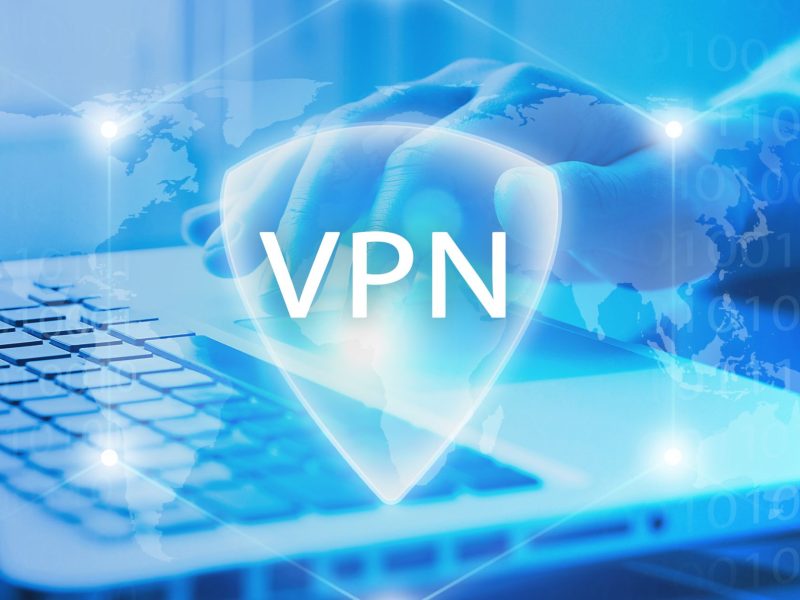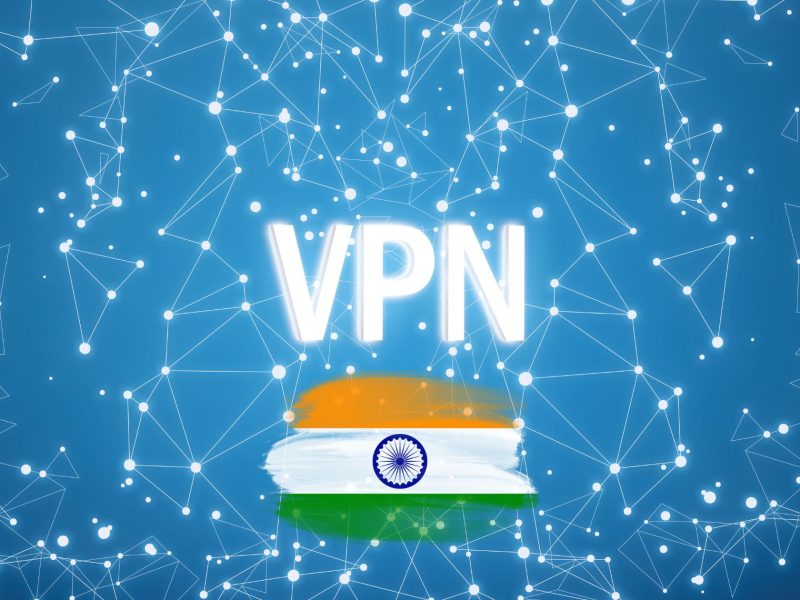Virtual private networks (VPNs) route your device traffic through intermediate servers to encrypt data flows and mask digital identities. Typically, you must install specialized VPN applications to create these encrypted connections. However, many providers now allow quick access to browser-based online VPN options that don’t require desktop clients or app downloads. You install, for instance, a VPN Chrome extension and connect VPN online without downloading anything to your computer.
This guide explores the best option to connect VPN online without downloading any apps and their major benefits. So whether using internet cafes or borrowed devices, you can stay shielded and devoid of admin rights hassles.
Introduction to Web-Based VPNs
Web-based VPNs, also known as browser-based VPNs, offer a seamless way to enhance your online security and privacy without requiring software installations. These VPN services operate entirely within your web browser, making them accessible and user-friendly.
Why Use Online Browser VPNs Without Installs?
Dedicated VPN apps certainly perform faster thanks to kernel-level optimizations absent within web tools built using JavaScript. However, direct online VPNs solve four key pain points:
Accessibility – Connect instantly from any device with just a browser, sans install rights
Mobility – Shared devices lack the permanence for desktop clients
Privacy – Leaves no identifiable software traces across machines
Anonymity – Prevents local network detection of VPN usage
Say you urgently need to access region-limited content from a friend’s computer or circumvent firewalls using workplace hardware. Online VPNs reconnect privacy sans enduring lengthy installation and configuration rituals.
How to Connect to a Web-Based VPN
Follow these steps to connect to a web-based VPN:
- Open Your Preferred Web Browser: Launch the web browser you trust the most.
- Search for a Web-Based VPN: Use a search engine to find reputable web-based VPN services. Opt for well-known options with proven security features.
- Visit the VPN’s Website: Click on the link to the VPN’s official website.
- Create an Account: Most web-based VPNs require user accounts. Sign up and provide the necessary information to create your account.
- Log In: After creating your account, log in using your newly created credentials.
- Choose a Server Location: Select a server location from the available options. Consider your specific needs, whether it’s for security, anonymity, or accessing geo-restricted content.
- Initiate the Connection: Click on the “Connect” or “Start” button to establish the VPN connection.
- Confirm Connection: Verify that the VPN is successfully connected by checking for an icon or indicator within your browser or on the VPN website.
- Start Browsing: You can now browse the internet securely through the VPN connection.
Choosing a Secure Web-Based VPN
Selecting a reliable web-based VPN is crucial for your online security. Here are factors to consider:
- Reputation: Look for well-reviewed and reputable web-based VPN services with a history of reliability.
- Security Features: Ensure that the VPN service uses robust encryption and has a strict no-logs policy to protect your data.
- Server Locations: Choose a web-based VPN with server locations that align with your needs, such as accessing content from specific regions.
- User-Friendliness: Opt for a VPN that offers an intuitive interface and straightforward setup.

Top Online Browser VPN Services
Many paid and even free VPN providers offer compelling instant web access models. However, here are 5 best VPN options when you need to connect online VPN without downloading.
The best overall online VPN services are:
1. VPNOnline – Unlimited, completely free, without ads, and 4 regions
2. Surfshark – Unlimited bandwidth with over 3000 servers across 65 regions
3. AtlasVPN – Lightning-fast speeds with 750+ servers and ad/malware blocking
4. Proton VPN – Ideal freemium plan with unlimited data in 3 countries
5. hide. me – Solid free version offering 2GB monthly data coverage
Let’s examine the relative strengths positioning each as an ideal online VPN solution.
1. VPNOnline
- 4 regions including the US, UK, Germany, and HongKong
- Unlimited ad-free usage
- Simple interface, no complicated requirements
- No login required
With its simple interface and unlimited usage, VPNOnline has been a top choice for me for a while now.
2. Surfshark
- Widest country and server pool coverage
- responsive client with useful widget toggles
- Privacy protection suite with multihop and shadowsocks
- Content unblocking including Netflix, Disney+, etc
- Affordable longer-duration subscriptions
With elite infrastructure and privacy provisions for decrypted instant connectivity, Surfshark leads as the go-to option when you need to connect online VPN without downloading.
3. AtlasVPN
- Among the world’s fastest online VPNs unhampered by long daisy chains
- Slick control dashboard allowing country selection
- Next the WireGuard tunneling protocol
- Adblocking and anti-malware filtering
- Unlimited data usage and generous concurrent connections
For lightning speeds even free from bandwidth limits, Atlas takes the online encryption lead.
4. Proton VPN
- Conceived by original OpenSSL inventor and respected academics
- Only service with a completely free tier
- Ideal freemium model without upsells
- Expanding infrastructure with 1000+ servers
- End-to-end encryption with zero activity logs
For ethical pedigree and genuine free offering, Proton aspires to be an online privacy reference.
5. hide. me
- Clean and intuitive online interface
- Pay-as-you-go billing without subscriptions
- Plenty of countries are covered even under the free data limit
- Added IP/DNS leak protection features
- 7-day trial for premium plans
For checking out premium-grade encryption and assessing needs before committing subscriptions, Hide.Me fits neatly.
Each provider tailors complementary strengths like speed, costs, or features into the online browser access model matching varied usage needs or priorities.
Tips for Using Web-Based VPNs Securely
While web-based VPNs offer convenience, follow these security best practices:
- Use HTTPS: Always visit websites that use HTTPS to add an extra layer of encryption to your connection.
- Keep Your Browser Updated: Regularly update your web browser to patch security vulnerabilities.
- Disconnect When Not in Use: Disconnect from the web-based VPN when you’re not actively browsing to conserve resources and maintain privacy.
- Secure Your Credentials: Safeguard your VPN account credentials and avoid sharing them.
Also Read: How to check if my VPN is working?
Can Free Online VPNs Match Paid Providers?
Generally no – free tools might promise equivalent encryption but still face hard limitations around:
1. Data Volume Caps – Usually 100s of MBs/day unable to meet typical usage
2. Connection Speeds – Often throttled to conserve resources
3. Server Network Scale – Very limited country locations to choose between
4. Support Limits – Lack of dedicated troubleshooting resources
However, reputed freemium services with paid upgrades like ProtonVPN furnish capable free tiers for lighter needs. But premium providers add better infrastructure, speeds and expanded usage limits justifying small subscription costs for heavy private browsing.

FAQs About Accessing Online VPNs
Are browser-based VPNs safe for banking or shopping?
Yes, any data flows during online transactions get equally shielded as desktop VPN apps assuming proper encryption protocols like VPNOnline along with expected VPN security provisions against leaks. However native desktop clients tend to sustain faster speeds.
Can schools or governments still detect online VPN usage?
Strict firewalls can potentially still identify VPN traffic if examining internet packets unless obfuscating cloaking shields like Shadowsocks or Stunnel encrypt the encryption! But it is easier to avoid detection than full VPN apps.
How do browser VPN speeds compare to installed apps?
Native VPN apps edge ahead on peak speeds due to lower overheads and kernel access absent in JavaScript implementations. But if you connect online VPN, you can still realize good enough speeds for HD video and similar bandwidth activities.
What are some top free browser-based VPN options?
As covered earlier, both ProtonVPN and hide.me offer highly capable free VPN plans workable for basic privacy needs accessible through the browser alone. But paid tiers unlock better speeds and usage limits.
Can I use a browser VPN on my phone?
Yes, both desktop and mobile browsers seamlessly interface with online VPN consoles to activate encryption after simply logging into the VPN provider’s website from phones or tablets.
In Summary
Online VPNs furnishing direct in-browser access deliver worthwhile flexibility shielding transient privacy needs, secondary devices, or sniff-proof workload undertakings sans enduring elaborate desktop app installations.
Match the right providers to usage patterns between premium players like Surfshark optimizing performance and budget tools like ProtonVPN’s freemium tier balancing costs.


